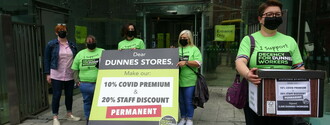- Featured
- Animal Rights
- Anti-racism
- Arts & Culture
- Children
- Climate
- Corporate accountability
- Crime
- Disability rights
- Economic
- Education
- Environment
- Food and Sustainable Production
- Gender Equality
- Governance and Transparency
- Health
- Housing
- LGBT Rights
- Mental health
- Northern Ireland
- Planning
- Privacy and Data Protection
- Rural Inequality
- Social Justice
- Trade
- Transport and Infrastructure
- Workers' Rights
- More
-
Save Bold & Brass Coffee Trailer in Dartry, Dublin 6Unfortunately, as a result of complaints from certain neighbours to Dublin City Council - one referencing “the sound of chatter and laughter”, we have been forced to close our Rathgar location 😞 This is obviously extremely upsetting for us, as we really feel that we have integrated so well into the community and were just after finding our feet in the area. To those that have expressed support during this situation, thank you so much. Most of you guys know that we really tried our best here and still it wasn’t enough for some people. We are one of many trailers across Dublin that so many people depended on during covid and now that covid restrictions have lifted we are being punished. 🤨 It has been a difficult couple of weeks trying to prevent this, and especially telling 4 wonderful staff members that they’ll no longer have jobs.1,241 of 2,000 SignaturesCreated by Kevin Ryan
-
SAVE THE TRIPOD CRANETreasure it above a sea of cars which could move to other locations and allow our Quays flourish as public places for people to enjoy.16 of 100 SignaturesCreated by Una Dunphy
-
Change Company Law- 7 Year itchIn June 2015 430 Clerys workers were told at 5:30pm on a Friday that there jobs were gone and the company was insolvent leaving no money for redundancies yet a "flaw" in company law allowed the previous separation of assets leave the owners with millions. Its been 7 years since Clerys and Debenhams workers were affected by this "flaw" in company law also. The flaw is still there and it could happen to any of workplace. This needs to end. We need the Protection Of Employees Collective Redundancies Bill of 2017 implemented NOW!! Its at committee stage at the Dail since then. Its time to stand up and fight so no other workers will have the same fate as Clerys or Debenhams. Will you join the fight? ***Update*** It has been brought to my attention that this Bill fell when the last Dail finished. Sinn Fein have re introduced it and are waiting at Second Stage to go before the Dail. Please share far and wide and lets get this moving again274 of 300 SignaturesCreated by Susie Gaynor
-
#FastAccessStamp4 for all international doctors in IrelandThis pandemic has impacted the global health system hugely. There is an acute staff shortage globally and Ireland has had a major blow. This fair treatment/acknowledgment of the contribution of international doctors will provide Ireland an EXPERIENCED work force in the long run to tackle post covid aftershocks. This will ultimately benefit society and the health system and also build solid trust between the Irish health system and international doctors .2,580 of 3,000 SignaturesCreated by Dr Liqa ur Rehman
-
Fund Addiction Services in TallaghtCrack cocaine is decimating communities and families and has become an epidemic. Tallaght West, where the two services operate is seeing record levels of users and they need help, support and compassion. There can be no abandonment of people who need help the most. The funding must be guaranteed and the services must do their essential work.94 of 100 SignaturesCreated by Alex Homits
-
End The Book Ban In PrisonsA spokesperson for the IWOC, a union directly linked to the radical Industrial Workers of the World, called upon the NIPS to end the book ban "immediately". In a statement issued they said "Incarcerated Workers throughout the Covid-19 pandemic have been hit hard with restrictions of movement seeing prisoners locked up for 23 hours a day. Reading materials are vital for prisoners, it's a lifeline for everyone to be able to immerse themselves in books, pamphlets, magazines and newspapers. To have that restricted, withheld or banned is a denial of prisoners basic human rights and we call upon those within the Northern Ireland Prison Service to lift the ban immediately as it runs counter to Article 10 of the European Convention of Human Rights. Prisoners have even been refused books, reading materials and even accessing music interests if it wasn't bought from a reputable outlet such as from multinational corporations as Amazon. This in turn prevents those incarcerated from accessing material of their choice such as small independent publishers and distributors who actually have a wider range of reading materials which are fundamental to freedom of choice. Effectively this is a ban on books to prisoners by another name. At present there is currently only regulated access to book distributors which NIPS approve of such as Amazon. This in turn dramatically limits financially what a prisoner can access. There is also a ban on books and publications which family and friends send in from the outside. No matter what way they dress it up, this is fundamentally a ban on books by another name. The Incarcerated Workers Organising Committee demand that the Northern Ireland Prison Service immediately end their policy of banning books and reading materials across the prison system. This must not be allowed to continue. We call upon those interested in human rights and social justice, to writer's, independent publishers, artists and musicians to help add their voice by supporting prisoners human rights by also demanding that this be stopped immediately.43 of 100 SignaturesCreated by IWW Ireland

-
Safe Staffing levels for Healthcare Workers in Private Nursing Homes IrelandIt is in every Irish citizens interest to protect our Healthcare Workers and the people they care for, one day it might be you who needs to be cared for! This petition is not only for Healthcare workers but for every single person who lives in Ireland. We Need every one of you. This is a movement in itself. If we get enough signatures we could help to improve the quality of life not just for the healthcare workers but also for the vulnerable people they care for. We need the people of Ireland behind us and we need the minister for health and the government to listen to us and take us seriously because we will not stop, we will never give up until this catastrophe is fixed. We need your support now!! We need better working conditions for all healthcare workers so that we can provide the best quality of care for the people we care for!!47 of 100 SignaturesCreated by Margaret Power
-
Support Youth Demands for Climate JusticeThe more young people who sign in support, the more we can pressure our decision makers to implement these demands.632 of 800 SignaturesCreated by Theresa Rose Sebastian
-
Reward your workers for their Covid-19 sacrificeAs customers of Dunnes Stores we are calling on the company to make their worker’s 10% Covid-19 premium and 20% staff discount permanent. Over the last 18 months workers in retail have been on the frontlines and helped keep food on our tables. They risked their health and their lives. Dunnes workers haven’t had a pay increase since 2019. The temporary Covid-19 premium doesn’t count when it comes to pensions or holidays. It’s time the company made the 10% premium and 20% staff discount permanent as a reward for the sacrifices their workers made on the frontlines during the pandemic. *Working in Dunnes Stores and not already a Union member? Join Mandate Trade Union today at www.joinmandate.ie.7,579 of 8,000 SignaturesCreated by Dave Gibney
-
A WORLD WITHOUT WAR82% of the Irish people support neutrality in all its aspects.127 of 200 SignaturesCreated by Margaretta Darcy
-
Trinity College Dublin: Boycott Israeli Apartheid!We call on TCD to boycott and divest from all companies which operate in historic Palestine or which are complicit in Israeli apartheid. This includes companies which manufacture arms or security technologies used by the state of Israel to carry out ethnic cleansing and implement apartheid against the Palestinian people. TCD currently has links with 15 Israeli organizations, including academic institutions such as the Weizmann Institute of Science, which openly collaborates with the war-industry, including many companies involved in armaments, such Israel Aerospace Industries and Elbit Systems. Furthermore, College solicits services from Tel Aviv University, which develops war technology, trains lawyers to defend war crimes and sends Pro-Israeli delegations to foreign universities. Finally, College has links with Technion - Israel Institute of Technology, which is involved with arms research and technology, cooperates with the Israeli military and openly collaborates with the Elbit corporation. This makes every member of the college community complicit in Israel’s crimes and oppression of Palestine. We will not stand for this. We call on TCD to cease all collaboration with Israeli universities in accordance with the guidelines laid down by PACBI, the Palestinian Academic and Cultural Boycott of Israel. These guidelines call for a boycott of Israeli academic institutions, rather than individual academics, as these institutions have played a key role in the ongoing colonization of Palestine. We demand the immediate cessation of research cooperation with Israeli universities that is in any way connected with the security and military industries.986 of 1,000 SignaturesCreated by Trinity BDS
-
Scrap JobBridge 2.0Under the new Work Placement Experience Programme, bosses are able to get free labour, with workers only receiving €3.43 an hour paid by the taxpayer. Not only does this undermine wages and conditions for existing workers, it blocks the creation of actual paid jobs by incentivising companies to use free labour instead. Instead of this exploitation, we need public investment in a green jobs programme, creating decent, secure jobs building carbon-neutral homes, providing healthcare and education and improving other public services. Such a programme should also involve expanding genuine paid apprenticeship schemes, and opening up education by making it free to all.1,585 of 2,000 SignaturesCreated by ScamBridge Campaign


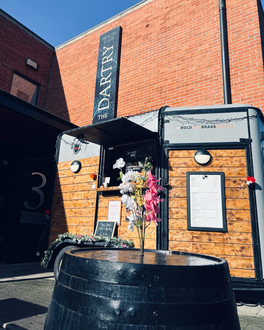
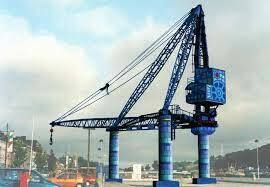.jpeg)
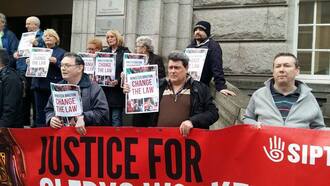


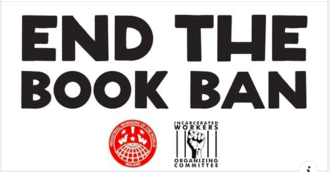
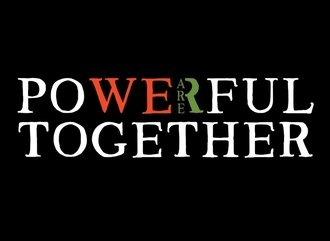
.png)
